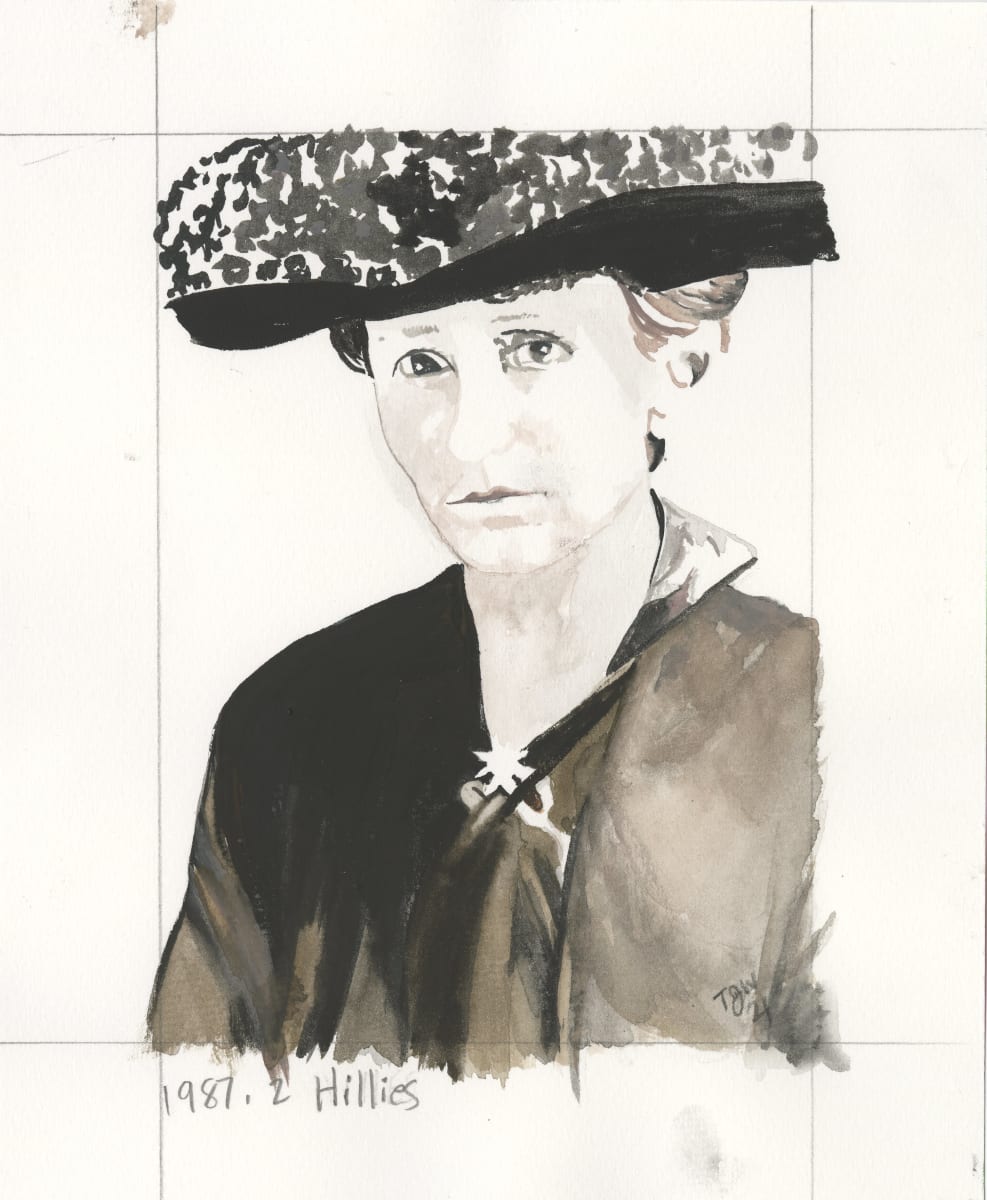Year Honored: 1987
Birth: 1865 - 1954
Born in: Delaware
Biography
One of the most prominent suffragists in Delaware, Florence Bayard Hilles, was born into the prominent Delaware Family, the Bayard’s, which boasted a lineage of politicians. Her father, Thomas Francis Bayard, served as the U.S Senator from Delaware, Secretary of State under Grover Cleveland, and was appointed U.S Ambassador to the Court of St. James. Hilles split her childhood between Washington D.C, Delaware, and Great Britain.
After her father’s death in 1898, Hilles married William S. Hilles, a lawyer, and the couple had one daughter. During World War I, Hilles served as a munition’s worker at Bethlehem Steel Factory in New Castle. After the war, she helped with reconstruction efforts in France through the American Commission for Reconstruction.
At the Delaware State Fair in 1913, Hilles met the suffragist Mabel Vernon, and Hilles became involved in the movement for Women’s Suffrage. By 1914, Hilles was the President of the Delaware Suffrage Association. She organized the first women’s suffrage parade in Wilmington in May, and later that same month, headed the delegation sent to March in Washington. She worked on the “Suffrage Special” cross-country road-trip in 1916, and also confronted President Woodrow Wilson alongside Mabel Vernon. Her coat hid a banner reading, ‘Mr. President, what will you do for women’s suffrage?’ that was displayed during Wilson’s speech to a joint session of Congress.
As a suffrage supporter, Hilles served as a member of the National Executive Committee and was also on the building committee for the party’s national headquarters. In 1915, she led a procession from the railroad station in Dover to the Capital which culminated in the ‘war of the roses’ outside the state capital between the anti’s and pro-suffragists.
Hilles, and the National Women’s Party as a whole, had a somewhat complicated stance on the position of African American Women in the suffragist movement. The Wilmington Equal Suffrage Club had on occasion participated in NWP sponsored events, and Hilles invited them to join the NWP in attempting to convince the Delaware Legislature to ratify the 19th amendment, angering some of her colleagues. However, Hilles also spoke against “giving the franchise to colored women,” saying, “don’t you know that this is a white man’s and a white woman’s state and always will be?”
Hilles joined the militant suffragists, known as the ‘Silent Sentinels,’ in picketing outside of Wilson’s White House. Hilles was one of five Delaware women arrested and sentenced to sixty days in the Occoquan Workhouse in Virginia. She joked during her sentencing that the only court she had ever been to before that was the Court of St. James. Three days into the sentence, President Wilson issued a pardon. She also remarked that “For generations the men of my family have given their services to their country. For myself, my training from childhood has been with my father who believed in democracy and who belonged to the Democratic party. By inheritance and connection, I am a Democrat, and to a Democratic President I went with my appeal. What a spectacle it must be to the thinking people of this country to see us urged to go to war or democracy in a foreign land, and to see women thrown into prison who plead for that same cause at home.”
After the amendment was approved by Congress, Hilles and Vernon worked with the other state suffragists to convince the Delaware Legislature to ratify the amendment. When that effort failed, Hilles traveled to Tennessee and successfully lobbied for ratification.
Hilles remained involved in advocacy with the NWP and later began an extensive campaign of support for the Equal Rights Amendment, particularly championing women’s economic rights. She also volunteered at the People’s Settlement House, the Children’s Bureau, the Birth Control League, Women’s International League for Peace and Freedom, and several other associations in various fields. In 1943, the NWP named the library at the Sewall-Belmont House, which is now the oldest feministic library in the U.S, in her honor.
_____________________________________________________________________________
Sources and Additional Readings
Biographical sketch of Florence Bayard Hilles. Biographical Sketch of Florence Bayard Hilles | Alexander Street Documents. (n.d.). Retrieved January 10, 2022, from https://documents.alexanderstreet.com/d/1008342612
Delaware. Governor's Commission on the Status of Women, "Forward Women from Delaware's Past". Manuscript and Archival Collections Finding Aids. (n.d.). Retrieved January 10, 2022, from https://library.udel.edu/special/findaids/view?docId=ead%2Fmss0098_0203.xml%3Bquery
Florence Bayard Hilles (1865 – 1954). Turning Point Suffragist Memorial. (1970, July 18). Retrieved January 10, 2022, from https://suffragistmemorial.org/florence-bayard-hilles-1865-1954/
Florence Bayard Hilles. The Library of Congress. (n.d.). Retrieved January 10, 2022, from https://www.loc.gov/item/mnwp000400
National Woman's Party. Alice Paul Institute. (n.d.). Retrieved January 10, 2022, from https://www.alicepaul.org/nwp/
U.S. Department of the Interior. (n.d.). Belmont-Paul Women's Equality National Monument (U.S. National Park Service). National Parks Service. Retrieved January 10, 2022, from https://www.nps.gov/bepa/index.htm
- Collections: 1987, Delaware Suffragists

